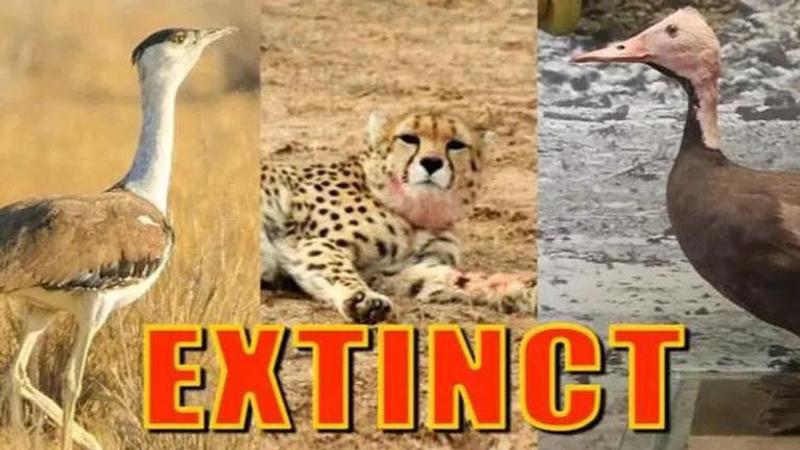Published 16:45 IST, September 10th 2019
Research has revealed that 3 species in India have become extinct
Researchers at COP14-UNCCD revealed that three species of animals- the Indian Cheetah, pink-headed duck and the Great Indian Bustard had become extinct

Researchers at the 14th Conference of Parties (COP14) to the United Nations Convention to Combat Desertification (UNCCD) revealed that three species of animals- the Indian Cheetah, pink-headed duck and the Great Indian Bustard have become extinct in India. Research indicates that desertification is the cause behind this. More than 150 species are approaching the point of extinction and have been categorized as critically endangered. On this occasion, the Director of the Zoological Survey of India, Kailash Chandra expressed his opinion.
‘Impact of deforestation and desertification’
Chandra stated that they had a database of more than 5.6 million specimens, from all over India and neighbouring countries before Independence. According to him, this data gave a lot of information about how things had changed in more than 100 years. He stressed that deforestation and desertification had a huge impact on the life of the species. Further, he elaborated on the causes of desertification like insecticides, pesticides, conversion to agricultural land, industries and chemicals, and indiscriminate development. Chandra opined that the entire food chain was affected due to desertification and it was essential to minimize it.
Millions of species at risk
He observed that India faced a growing threat of land degradation. More than 30% of the land resources in India have been affected by over-cultivation, soil erosion and depletion of wetlands. India is not the only country having issues of aridity. A recent report from the Intergovernmental Science-Policy Platform on Biodiversity and Ecosystem Services (IPBES), functioning under the aegis of the UN, estimated that over a million plant and animal species were at risk due to degradation of ecosystems like coral reefs, mangroves, and wetlands.
COP14-UNCCD meeting in Greater Noida
Representatives of countries all over the world have gathered at the COP14-UNCCD from September 2 to September 13 to acknowledge this crucial issue and work towards better land management. Prime Minister Narendra Modi addressed the gathering and promised co-operation in fighting climate change and land degradation. He elucidated the negative effects of climate change. Moreover, he announced the setting up of India’s first Centre of Excellence at the Indian Council of Forestry Research and Education to focus on land degradation issues for better South-South co-operation.
(With ANI inputs)
Updated 18:25 IST, September 10th 2019




